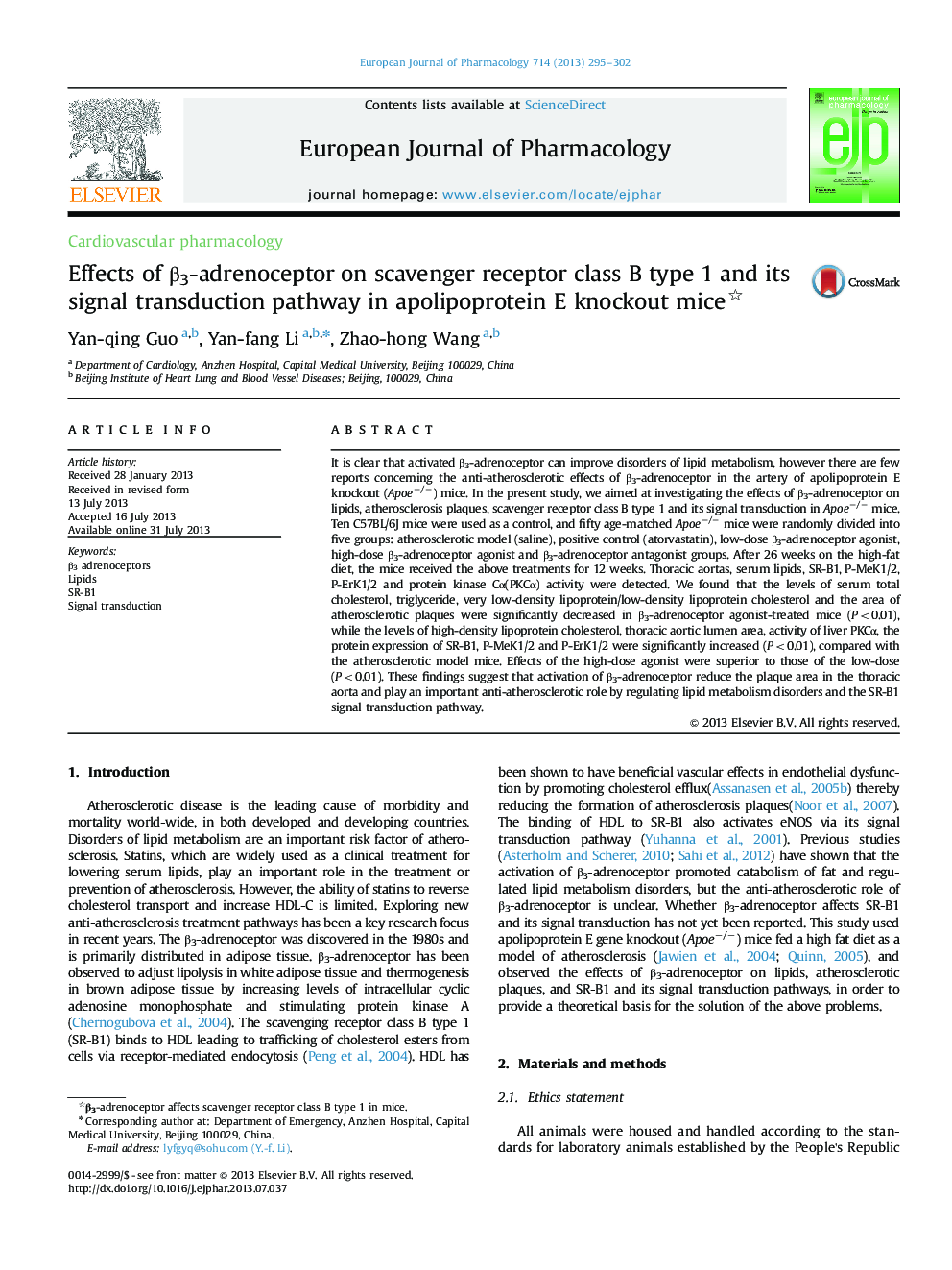| Article ID | Journal | Published Year | Pages | File Type |
|---|---|---|---|---|
| 5828587 | European Journal of Pharmacology | 2013 | 8 Pages |
Abstract
It is clear that activated β3-adrenoceptor can improve disorders of lipid metabolism, however there are few reports concerning the anti-atherosclerotic effects of β3-adrenoceptor in the artery of apolipoprotein E knockout (Apoeâ/â) mice. In the present study, we aimed at investigating the effects of β3-adrenoceptor on lipids, atherosclerosis plaques, scavenger receptor class B type 1 and its signal transduction in Apoeâ/â mice. Ten C57BL/6J mice were used as a control, and fifty age-matched Apoeâ/â mice were randomly divided into five groups: atherosclerotic model (saline), positive control (atorvastatin), low-dose β3-adrenoceptor agonist, high-dose β3-adrenoceptor agonist and β3-adrenoceptor antagonist groups. After 26 weeks on the high-fat diet, the mice received the above treatments for 12 weeks. Thoracic aortas, serum lipids, SR-B1, P-MeK1/2, P-ErK1/2 and protein kinase Cα(PKCα) activity were detected. We found that the levels of serum total cholesterol, triglyceride, very low-density lipoprotein/low-density lipoprotein cholesterol and the area of atherosclerotic plaques were significantly decreased in β3-adrenoceptor agonist-treated mice (P<0.01), while the levels of high-density lipoprotein cholesterol, thoracic aortic lumen area, activity of liver PKCα, the protein expression of SR-B1, P-MeK1/2 and P-ErK1/2 were significantly increased (P<0.01), compared with the atherosclerotic model mice. Effects of the high-dose agonist were superior to those of the low-dose (P<0.01). These findings suggest that activation of β3-adrenoceptor reduce the plaque area in the thoracic aorta and play an important anti-atherosclerotic role by regulating lipid metabolism disorders and the SR-B1 signal transduction pathway.
Keywords
Related Topics
Life Sciences
Neuroscience
Cellular and Molecular Neuroscience
Authors
Yan-qing Guo, Yan-fang Li, Zhao-hong Wang,
